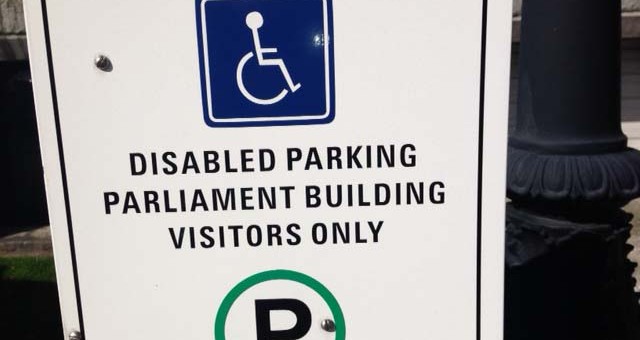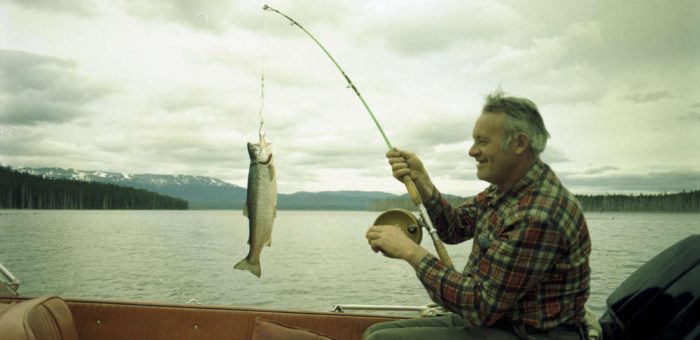Issues & Community Blog - Andrew Weaver: A Climate for Hope - Page 96
Bill M231 — Ensuring municipalities actually have residents!
Today in the legislature I introduced Bill M231 — Local Government Amendment Act.
If passed, this Bill will ensure that municipalities in BC cannot be incorporated without first ensuring that there are residents actually living in the area at the time of incorporation. This might seem like an unnecessary bill as it would seem obvious that a municipality, governed by a Mayor and two Councillors, should actually have people and property to govern. Well that’s not the case in the wild west of British Columbia politics.
Back in 2012, the BC Liberals amended The Local Government Act to allow mountain resort municipalities to be created that have no residents. In particular, this was done in support of the proposed Jumbo Glacier Mountain resort that I have written about earlier.
Given opposition to the resort by the Ktunaxa Nation, the fact that the environmental assessment certificate has expired, and that the project has not substantially started, it seemed timely to close the loophole for good as it sets a dangerous precedence.
Below I reproduce the text and video of my introduction of the Bill.
Text of my Introduction
A. Weaver: I move that a bill intituled the Local Government Amendment Act, 2017, of which notice has been given in my name, be introduced and read a first time now.
Motion approved.
A. Weaver: I’m pleased to be reintroducing a bill intituled the Local Government Amendment Act. It’s absurd that in British Columbia today a municipality exists that has no houses, no infrastructure and no people. The Jumbo Glacier Resort is designated as a mountain resort municipality, and despite not having any people, it has a salaried, province-supported mayor and two councillors.
This government created the loophole that has allowed this municipality to exist, despite there being no residents. It was created solely for the purpose of a specific pet-project that this government wants to proceed.
This bill would close this ridiculous loophole and ensure that municipalities in British Columbia actually have people living in them.
I move that the bill be placed on the orders of the day for second reading at the next sitting after today.
Bill M231, Local Government Amendment Act, 2017, introduced, read a first time and ordered to be placed on orders of the day for second reading at the next sitting of the House after today.
Video of my Introduction
Bill M228 — Energy and Water Efficiency Act, 2017
Today in the legislature I rose to table Private Members’ Bill entitled: Bill M228 — Energy and Water Efficiency Act 2017: As I noted in introducing it, this Bill was originally tabled by the Liberal government in 2012 as Bill 32 — Energy and Water Efficiency Act. The Bill received support from all sides of the legislature when it was introduced in 2012. Unfortunately, it was never brought to the Committee of the whole house and subsequently third reading. We missed an opportunity in 2012 to pass this legislation. I hope that the government chooses to pick this up at this time.
Text of Bill Introduction
A. Weaver: I move that a bill intituled the Energy and Water Efficiency Act, 2017, of which notice has been given, be introduced and read a first time now.
Motion approved.
A. Weaver: I’m pleased to introduce a bill intituled the Energy and Water Efficiency Act, 2017.
This bill was originally tabled by the Liberal government in 2012. This is a bill that the Minister of Energy and Mines, at the time, said would reduce consumers’ energy bills and lower operating costs for B.C. businesses.
This legislation would replace the current Energy Efficiency Act. It would enable administrative penalties to ensure manufacturers, distributors and retailers comply with energy efficiency guidelines, broaden the scope of energy efficiency requirements to include commercial energy systems, industrial reporting and water efficiency and enable the minister responsible to enact regulations for technical standards.
It was a good and widely supported piece of legislation. It seems that the only reason it went to second reading and wasn’t taken to committee was the fact that the official opposition supported it.
I move that the bill be placed on the orders of the day for the second reading at the next House after today.
Bill M228, Energy and Water Efficiency Act, 2017, introduced, read a first time and ordered to be placed on orders of the day for second reading at the next sitting of the House after today.
Video of Bill Introduction
Bill M227 — Court Order Enforcement Amendment Act
Today in the legislature I introduced a private members Bill M227 —Court Order Enforcement Amendment Act, 2017. The bill adds Registered Disability Savings Plans (RDSPs) and Registered Education Savings Plans (RESPs) to the list of plans protected under the act.
Registered Retirement Savings Plans (known as RRSPs) were first introduced federally in 1957. Legislation enabling Registered Retirement Income Funds (known as RRIFs) was subsequently brought forward in the late 1970’s.
RRSPs and RRIFs are protected in BC and most other provinces from creditors in the case of personal bankruptcy. Protecting these funds provides a glimmer of hope that individuals undergoing bankruptcy will not be destitute in their old age.
In 2008 Federal legislation was passed to allow for the creation of Registered Disability Savings Plans (RDSPs). The RDSP is a federal, tax-deferred, long-term savings plan for people with disabilities who want to save for the future. Unfortunately, under our outdated Court Order Enforcement Act, 1996, RDSPs are not listed as a registered plan in BC’s legislation and are therefore not exempt from creditor protection. Should an individual with an RDSP go into debt, their savings in the RDSP will not be protected from seizure. The same is true for Registered Education Savings Plans (known as RESPs). A child should not have their education investment seized due to misfortune that befalls their parents. Alberta has protected RESPs; we should follow suit.
I asked the Minister of Justice about this problem in question period three years ago. At the time, the Minister said that it was an important issue and that she’d be glad to work with me to move it forward. Yet three years have now passed and still nothing has changed. Seeing as I haven’t seen any meaningful progress from the government on this simple legislative change, I decided to offer them a possible solution, yet again.
Text of Bill Introduction
A. Weaver: I move that a bill intituled the Court Order Enforcement Amendment Act, of which notice has been given, be introduced and read a first time now.
Motion approved.
A. Weaver: Registered retirement savings plans are protected in this province from creditors in the case of personal bankruptcy.
Protecting these funds provides a small safeguard that individuals undergoing bankruptcy will not be completely destitute in their old age. It is a good law that most provinces in Canada have adopted.
However, there is no protection for funds that are part of a registered education savings plan or a registered disability savings plan. These are important funds that need equal protection, recognizing that a child should not have their education investment seized due to a misfortune that befalls their parents.
The Alberta government has passed legislation to protect RESPs. It is with this in mind that I bring this bill forward today. This bill amends the Court Order Enforcement Act to ensure that RESPs and RDSPs are protected by law from predators.
I move that the bill be placed on the orders of the day for second reading at the next sitting of the House after today.
Bill M 227, Court Order Enforcement Amendment Act, introduced, read a first time and ordered to be placed on orders of the day for second reading at the next sitting of the House after today.
Video of Bill Introduction
Introducing Endangered Species Legislation for British Columbia
Today in the legislature I introduced a private member’s bill entitled Bill M 225 — Endangered Species Act, 2017. This Act builds off the Ontario Endangered Species Act and the B.C. version of their legislation tabled by the BC NDP in 2011. My office was grateful to work with Gwen Barlee from the Wilderness Committee and environmental lawyer Sean Nixon from EcoJustice to close loopholes and make the bill more proactive and preventative. I also incorporated language from the United States Federal Endangered Species Act to make it more effective and comprehensive. Of note is the addition of a section that mirrors the US Endangered Species Committee, known as the “God Squad” because of the substantial impact of its decisions on the natural world.
Below I reproduce the text and video of the speech I gave as I introduced the bill. I also include the accompanying media release.
Text of my Introduction
A. Weaver: It gives me great pleasure to move that a bill intituled Endangered Species Act, 2017, of which notice has been given, be introduced and read a first time now.
Motion approved.
A. Weaver: I’m pleased to be introducing a bill intituled the Endangered Species Act, 2017. The world is in the midst of an extinction crisis, and humans are the driving force. British Columbia is the most biodiverse province in Canada, but it is also the home to more at-risk species than any other province. Half of British Columbia’s assessed species are deemed at risk.
In addition to identifying, protecting and rehabilitating at-risk wildlife populations and habitats, this act seeks to introduce proactive measures that will prevent healthy species from declining in the first place. The act substantively expands upon the Ontario Endangered Species Act, the B.C. version of their legislation tabled by the B.C. NDP in 2011 and the American federal Endangered Species Act. Under the guidance of lawyers and advocates who have worked tirelessly on this issue, I was able to close problematic loopholes and make this act more proactive, transparent and effective.
Of note is the addition of a section that changes how exemptions are made. Under this new section instead of being left to the discretion of the minister, if government or industry want to take actions that will result in a species going extinct, it is required to go through an independent publicly disclosed board review.
I move that the bill be placed on the orders of the day for second reading at the next sitting of this House after today.
Bill M225, Endangered Species Act, 2017, introduced, read a first time and ordered to be placed on orders of the day for second reading at the next sitting of the House after today.
Video of my Introduction
Media Release
Weaver introduces Endangered Species Act
For immediate release
February 27th, 2017
VICTORIA B.C. – The entire world in is the midst of an extinction crisis and humans are the driving force.
“In Canada, British Columbia is the most biodiverse province, but it is also home to more at-risk species than any other province,” says Andrew Weaver, Leader of the B.C. Green Party. “Half of B.C.’s assessed species are deemed at risk.”
“B.C.’s biodiversity is globally significant, rapidly declining, and lacking any substantial legal protection – this Act aims to change that by bringing into force standalone legislation to safeguard British Columbia’s native wildlife species and their habitat.”
In addition to identifying, protecting, and rehabilitating at-risk wildlife populations and habitats, this Act seeks to introduce proactive measures that will prevent healthy species from declining in the first place.
“Compared to reactive government efforts to intervene in a habitat already out of balance, preserving healthy ecosystems is easier, more cost effective, and avoids needless animal suffering,” says Weaver. “Furthermore, as the global climate warms and precipitation patterns shift, having a complete ecosystem within which animals and plants can try to adapt will be essential.
“The Federal Species at Risk Act and B.C.’s current non-binding patchwork approach to protecting wildlife is clearly not working. The biodiversity in our province is prodigious, but it is not without risk. We will lose it if we do not act.”
This Act builds off the Ontario Endangered Species Act and B.C. version of their legislation tabled by the B.C. NDP in 2011. It incorporates language from the United State Federal Endangered Species Act to make it more effective, proactive, preventative, and comprehensive. Of note is the addition of a section that mirrors the US Endangered Species Committee, known as the “God Squad” because of the substantial impact of its decisions on the natural world.
– 30 –
Media contact
Mat Wright, Press Secretary
+1 250-216-3382 | mat.wright@leg.bc.ca
Introducing Right to Roam legislation in British Columbia
Today in the legislature I introduced a private member’s bill entitled Bill M223 — Right to Roam Act. This Bill reestablishes the rights of British Columbians to access public lands, rivers, streams, and lakes, and to use these spaces to fish, hike and enjoy outdoor recreation.
Increasingly, British Columbians are being fenced out of wild areas that have been enjoyed by the public for generations. One particularly high profile example involves public access to Minnie, Stoney and other lakes surrounded by Douglas Lake Ranch spread out over more than 500,000 acres. Approximately 365,000 acres are already crown land with full public access. But concern over access to several lakes was raised when Stoney Lake Road was suddenly gated in the late 1970s and subsequently locked in the early 1980s.
Below I reproduce the text and video of the speech I gave as I introduced the bill. I also include the accompanying media release.
Text of my Introduction
A. Weaver: I move that a bill intituled the Right to Roam Act, 2017, of which notice has been given, be introduced and read a first time now.
Motion approved.
A. Weaver: I’m pleased to be introducing a bill intituled the Right to Roam Act, 2017.
The ability to access and experience nature is a right for all British Columbians, and we must protect it. This bill will re-establish the rights of British Columbians to access public lands, rivers, streams and lakes and to use these spaces to fish, hike and enjoy outdoor recreation.
Hunting, fishing and outdoor recreation are a pivotal part of British Columbia’s heritage and form an important part of the fabric of present-day life in British Columbia. They are also vital to the understanding, conservation and management of fish and wildlife in our province.
Increasingly, however, British Columbians are being fenced out of wild areas that have been enjoyed by the public for generations.
One particularly high profile example involved public access to Minnie, Stoney and other lakes surrounded by Douglas Lake Ranch, spread out over more than 500,000 acres. Public access was prevented when Stoney Lake Road was suddenly gated in the 1970s and subsequently locked in the 1980s. This bill, which is built on a combination of B.C.’s existing Hunting and Fishing Heritage Act and Nova Scotia’s Angling Act, aims to address and prevent such conflicts.
I move that the bill be placed on the orders of the day for second reading at the next sitting of the House after today.
Bill M223, Right to Roam Act, 2017, introduced, read a first time and ordered to be placed on orders of the day for second reading at the next sitting of the House after today.
Video of my Introduction
Media Release
Weaver introduces Right to Roam Act
For immediate release
February 27th, 2017
VICTORIA B.C. – Locked gates on back roads are increasingly restricting access to wild lands in the province, making it harder for outdoors people to go hunting, fishing or hiking. A new bill tabled Monday by Andrew Weaver, Leader of the B.C. Green Party, would put a stop to that practice.
“British Columbians are increasingly being fenced out of the province’s wild lands. The ability to access and experience nature is a public right, and we must protect it,” says Weaver, who is the MLA for Oak Bay-Gordon Head. “Free public access to the outdoors is vital to people’s health and well-being, but it is also vital to the health and well-being of our environment. People protect what they know and love. If we become disconnected from our environment we risk disengaging with the fight for its future.”
In many regions of the province, the only way to access wild Crown lands is via logging roads, public back roads, or across privately owned forests and uncultivated areas. While casual public use of these accessways has not been an issue in the past, there is a growing trend of neighbouring landowners and forestry companies locking people out. Some are building fences and installing locked gates to block access altogether, others are implementing strict schedules or access fees. In extreme cases, British Columbians are getting arrested for trespassing while walking to public lakes they have been fishing for generations.
The Nicola Valley Fish and Game Club, a non-profit association dedicated to the local preservation and management of habitat and wildlife, for example, has spent years in a legal battle with the owner of the Douglas Lake Ranch over the public right to fish in public lakes..
“The Right to Roam Act aims to address and prevent conflicts like the Douglas Lake Ranch case. Nature in British Columbia should be open to all, not to just the privileged few,” says Weaver.
This Act was built off the existing BC Hunting and Fishing Heritage Act and the Nova Scotia Angling Act. It includes a few additional amendments, made with reference to a UVic Environmental Law Clinic report about enhancing public access to wild lands.
“By allowing people to cross uncultivated wild land to access public lands, rivers, streams, and lakes, the Right to Roam Act aims to re-establish the rights of British Columbians and to use these spaces to fish, hike and enjoy outdoor recreation.”
– 30 –
Media contact
Mat Wright, Press Secretary
+1 250-216-3382 | mat.wright@leg.bc.ca








